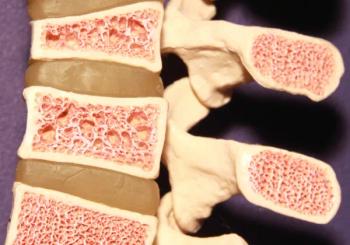
Millicent McCarren, MD, of Allegheny Health Network, sits down with Contemporary OB/GYN® to discuss tips, tricks, and clinical pearls for making sure your adolescent patients are coming in for their routine well woman visits.

Millicent McCarren, MD, of Allegheny Health Network, sits down with Contemporary OB/GYN® to discuss tips, tricks, and clinical pearls for making sure your adolescent patients are coming in for their routine well woman visits.

For preterm infants, clinical outcomes from microbial mechanisms are not affected by a diet of only human milk compared to bovine milk formulas or fortifiers.

At the 44th National Association of Pediatric Nurse Practitioners Conference, evidence-based approaches for supporting pregnant adolescents were discussed.

Nearly 59% of an infant’s microbiota composition is transferred by their mother.

In a recent study, worse neurodevelopmental outcomes were seen in children born preterm and with postnatal growth failure.

A booster dose of mRNA COVID-19 vaccination during pregnancy increases protection of infants from infection and related hospitalization.

Both undertreatment and overtreatment were common in this cohort of penicillin-allergic pregnant women with Group B Streptococcus (GBS).

In doing so, the country met the new target of the World Health Organization.

A teenager’s day-to-day behavior can vary greatly. Here are some tips for understanding and navigating this challenging time.

The same risk was not found for offspring of fathers with primary immunodeficiencies.

The rare condition can lead to life-threatening anemia in the fetus and currently lacks FDA-approved treatments.

In a recent study, maternal depression during pregnancy was associated with offspring brain age, while recent stress in offspring was associated with a greater aging pace.

Artificial neural network models have been developed which are able to accurately and efficiently predict neonatal metabolic bone disease.

In a recent study, the infant survival rate among periviable infants varied based on the type of active postnatal care received at certain gestational ages.

In a recent study, the association between poor prenatal diet and adiposity outcomes in children was directly impacted by prenatal psychosocial stress.

In what investigators are calling the largest study of its kind ever conducted in the US, results of the 2-year study, which included more than 300 transgender or nonbinary youth, underline the positive benefits seen with receipt of gender-affirming hormone therapy among this patient population.

The relationship between cesarean sections and childhood asthma has been investigated before, however, previous results have yielded conflicting evidence.

A recent study has associated the use of assisted reproductive technology in birth with an increased chance of developing childhood cancers.

Investigators found minimal difference between breastfeeding rates less than 1 week postpartum of women who had diabetes pre-pregnancy, gestational diabetes only, and no history of diabetes.

Period poverty isn’t just an issue in third-world countries or among low-income women. Across the United States, women of all ages still struggle to afford menstrual products.

An undocumented, Spanish-speaking, 15-year-old female presented to the emergency department with 3 weeks of fever (>101℉) and 3 days of abdominal pain. What's the diagnosis?

Parents are on edge as the formula shortage worsens across the United States. Pediatricians, the AAP, and White House advise on available options.

The higher the gestational age when pregnant women received a COVID-19 vaccine, the higher the serological titers at birth.

Evidence indicates that a delay in umbilical cord clamping leads to better outcomes for infants. What are the outcomes for those who are very preterm?

Gone are the days of little guidance for weight gain during pregnancy, but determining the best weight range has been elusive. A new study provides some helpful advice.